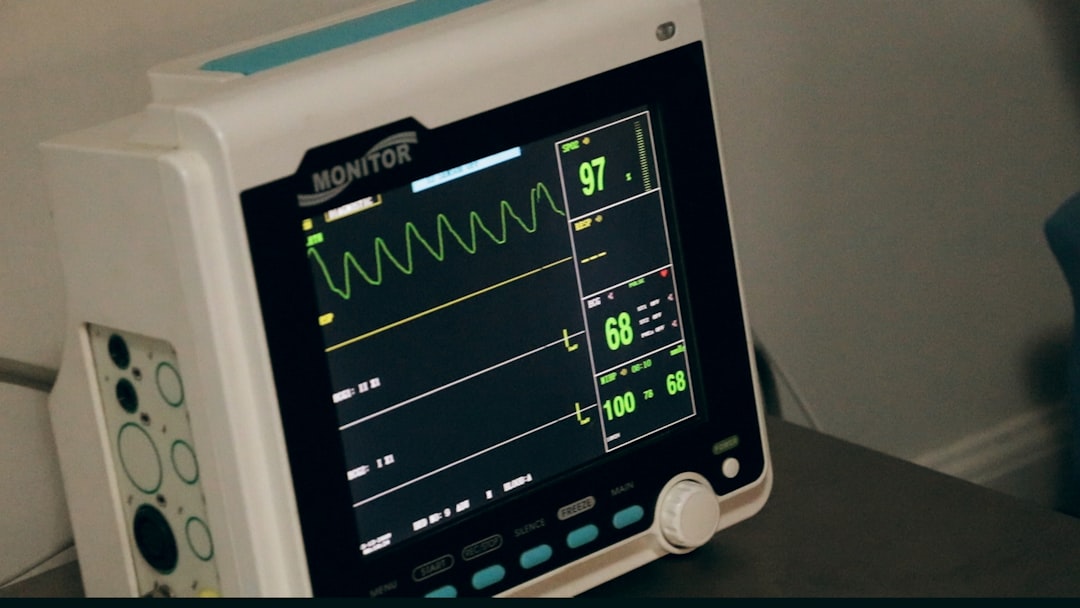The Clean Scan Illusion: When LDL Cholesterol Still Poses a Threat
Understanding the Impact of Elevated Cholesterol in Young Adults
Understanding the Basics
Elevated cholesterol levels in young adults pose a significant risk for developing cardiovascular diseases as they age. While cholesterol is essential for building healthy cells, excessive levels, particularly of low-density lipoprotein (LDL), can lead to adverse health outcomes, such as heart disease. High cholesterol can lead to serious health issues like heart disease and stroke, often without any symptoms, making regular screening essential. High cholesterol is a waxy substance in the blood necessary for building healthy cells but can increase heart disease risk. This risk is notably high in teens and individuals in their early twenties, where elevated LDL cholesterol levels can serve as early indicators of future cardiovascular complications. Even if cholesterol levels normalize later in life, the period of high exposure can leave lasting effects that increase the likelihood of heart problems. For instance, a young adult with high LDL levels may face an increased risk of heart disease decades later, despite achieving normal cholesterol levels in their 30s or 40s.
Alarmingly, about 20% of adolescents experience elevated cholesterol levels, often attributed to unhealthy dietary habits and a lack of physical activity. The prevalence of a sedentary lifestyle, coupled with diets rich in saturated fats and sugars, can significantly elevate cholesterol levels in young individuals. This early exposure to high cholesterol can hasten the development of conditions such as [atherosclerosis]. High cholesterol significantly increases the risk of developing atherosclerosis and cardiovascular disease in adulthood. For example, an adolescent consuming a high-fat diet may unknowingly accelerate plaque buildup in their arteries, setting the stage for cardiovascular disease later in life. Addressing these risk factors early on is crucial for fostering long-term heart health.


The Link Between Cholesterol and Plaque Buildup
Elevated levels of LDL cholesterol present a significant risk factor for the development of noncalcified coronary plaques, a condition that can occur even when a coronary artery calcification score is zero. This is particularly concerning for individuals under the age of 45, where the prevalence of noncalcified plaques is notably higher, underscoring the necessity of vigilant cholesterol monitoring in younger populations. For example, with each 1 mmol/L increase in LDL cholesterol, there is a 21% increase in the likelihood of developing these noncalcified plaques. This statistic reveals the hidden cardiovascular risks that can exist even in the absence of calcified plaques, as demonstrated by the 11% of study participants who had detectable noncalcified plaques despite having a zero calcium score.
The process of plaque buildup is exacerbated by high cholesterol levels, which can trigger inflammation within the arterial walls. This inflammation plays a crucial role in the progression of atherosclerosis, a condition characterized by the thickening and hardening of the artery walls due to plaque accumulation. In younger adults, the early onset of such arterial changes can have long-term health implications, potentially leading to more serious cardiovascular events later in life. By understanding the relationship between elevated LDL cholesterol and plaque formation, healthcare providers can advocate for more frequent screenings and early interventions. For those looking to address cholesterol-related health concerns proactively, consider reaching out to the experts at El Paso Emergency Room, where state-of-the-art facilities and a dedicated healthcare team are ready to provide professional assistance. Visit El Paso Emergency Room to learn more about their services and how they can support your heart health.
 Limitations of Negative Calcium Scores
Limitations of Negative Calcium Scores
Assessing Heart Disease Risk
While a negative calcium score may initially appear reassuring, it does not completely eliminate the risk of noncalcified plaques, which are often the precursors to more severe cardiovascular issues. This underscores a significant limitation when using calcium scores as the sole method for evaluating heart disease risk. To illustrate, a study revealed that despite having a zero coronary artery calcification score, some individuals still developed noncalcified plaques, which can be just as dangerous as calcified ones in contributing to heart disease. Therefore, relying exclusively on calcium scores might overlook the hidden risks posed by elevated LDL cholesterol levels and the formation of these noncalcified plaques, particularly in younger populations.


For a more accurate assessment of heart disease risk, it is advisable to conduct repeat evaluations of coronary artery calcium scores, especially in younger individuals who are at an increased risk of transitioning to advanced atherosclerosis over time. Current medical guidelines emphasize that young adults with elevated cholesterol levels should not solely depend on calcium scores to gauge their risk of developing heart disease. A negative result can create a misleading sense of security, potentially delaying crucial lifestyle changes or necessary medical interventions that could prevent the progression of cardiovascular disease. By understanding these limitations, individuals and healthcare providers can adopt a more comprehensive approach to heart disease risk assessment, incorporating additional diagnostic tools and proactive management strategies. For those seeking thorough cardiovascular evaluations, El Paso Emergency Room offers state-of-the-art facilities and expert care, ensuring that potential risks are addressed promptly. Visit El Paso Emergency Room to learn more about their comprehensive services and dedicated healthcare team.
 Early Detection and Management
Early Detection and Management
Importance of Regular Screenings
Regular cholesterol screenings are a vital component of proactive health management, particularly starting in early adulthood. This routine monitoring is crucial because it allows individuals to understand their cholesterol levels and manage long-term health risks effectively. Studies have shown that early detection significantly reduces the possibility of developing atherosclerosis and other cardiovascular diseases by facilitating timely interventions. For instance, a young adult who identifies elevated cholesterol levels early can adopt lifestyle changes or begin treatment to prevent future complications.
Screening guidelines recommend that children between the ages of 9-11 undergo cholesterol checks, and these screenings should continue into adulthood every 4-6 years. For those with specific risk factors, such as a family history of heart disease or other underlying health conditions, screenings should be more frequent to ensure no early signs of cardiovascular issues are overlooked. A comprehensive lipid panel blood test remains the gold standard for diagnosing cholesterol levels, providing critical information for developing appropriate management strategies. Moreover, understanding one’s family history of heart disease can guide healthcare providers in tailoring the frequency and type of screenings, as well as recommending specific treatment plans.

Lifestyle Changes and Cholesterol Management
Practical Steps for Heart Health
Adopting lifestyle changes is crucial for managing cholesterol levels and promoting heart health in young individuals. A balanced and healthy diet plays a significant role in this process. Young adults are encouraged to limit their intake of saturated fats and trans fats, commonly found in processed foods, fast foods, and baked goods, as these can elevate LDL cholesterol levels, posing a risk to cardiovascular health. Instead, choosing healthier fats such as those found in olive oil, avocados, and nuts can support better cholesterol levels. An exemplary approach is the Mediterranean diet, which emphasizes fruits, vegetables, whole grains, and lean proteins, offering a heart-friendly nutritional plan.
Regular exercise is another cornerstone of cholesterol management, as it not only helps in maintaining a healthy weight but also boosts HDL cholesterol, often referred to as the “good” cholesterol. Engaging in activities such as brisk walking, cycling, or swimming for at least 150 minutes per week can significantly improve heart health by promoting the removal of excess cholesterol from the bloodstream. For instance, a young adult who incorporates a daily routine of 30 minutes of brisk walking can experience a noticeable improvement in their lipid profile over time.
Additionally, incorporating fiber-rich foods like oats, beans, and lentils can aid in lowering LDL cholesterol levels. These foods help in the absorption of cholesterol in the digestive tract, thereby reducing the overall levels in the bloodstream. Furthermore, maintaining a healthy weight is crucial, as obesity is a known contributor to elevated cholesterol and related heart diseases. Weight management through a combination of diet and physical activity can prevent the onset of obesity and its associated complications. For those seeking immediate assistance or guidance in managing heart health, El Paso Emergency Room offers state-of-the-art emergency services. They provide expert advice and prompt care to help individuals embark on a healthier lifestyle journey. Visit El Paso Emergency Room for more information and resources to support heart health.
 Genetic Factors and Cholesterol Levels
Genetic Factors and Cholesterol Levels
 Understanding Familial Hypercholesterolemia
Understanding Familial Hypercholesterolemia
Familial hypercholesterolemia is a hereditary condition that causes elevated LDL cholesterol levels from birth, necessitating prompt and proactive intervention. This genetic disorder can significantly increase the risk of heart disease if not identified and managed early. Genetic testing, alongside a thorough family medical history assessment, plays a vital role in pinpointing individuals who might be predisposed to this condition. For instance, a young adult with a parent suffering from high cholesterol may benefit from early genetic screening, which can help tailor a personalized treatment plan.
The management of familial hypercholesterolemia typically involves a combination of lifestyle modifications and medication. Statins are commonly prescribed to help control cholesterol levels in both children and adults affected by this condition. However, lifestyle changes such as adopting a heart-healthy diet and engaging in regular physical activity are equally important. In cases where individuals fail to respond adequately to lifestyle adjustments alone, medications become crucial in maintaining healthy cholesterol levels. People with familial hypercholesterolemia often face the onset of heart disease much earlier than the general population, sometimes in their 30s or 40s, underscoring the importance of early detection and intervention.
Early screening and continuous management are essential strategies to avert severe cardiovascular events in those with a genetic predisposition. By understanding and addressing familial hypercholesterolemia early on, individuals can reduce their risk of developing heart disease later in life. If you have concerns about your cholesterol levels or family history, consider reaching out to healthcare professionals for advice and screening. For expert guidance and support in managing heart health, explore the services offered by El Paso Emergency Room, where their dedicated team is ready to assist you with state-of-the-art care. Visit El Paso Emergency Room to learn more about their exceptional healthcare services.
 Empowering Youth for Better Heart Health
Empowering Youth for Better Heart Health
Encouraging Proactive Approaches
Incorporating early intervention strategies for managing cholesterol levels in young individuals is crucial to reducing the risk of heart disease. This proactive approach can include regular cholesterol screenings, especially for those with a family history of heart disease, and adopting lifestyle changes, such as a balanced diet and regular physical activity. For instance, a young adult who begins managing their cholesterol through dietary adjustments and exercise may significantly lower their risk of developing cardiovascular issues later in life. Understanding and addressing these risk factors early on is vital for maintaining long-term heart health [1].
Additionally, empowering youth with information and resources to take charge of their heart health is essential. Encouraging young individuals to seek professional guidance when needed can lead to timely interventions that prevent the onset of more severe conditions. El Paso Emergency Room provides comprehensive emergency care services that can assist individuals in managing heart health concerns effectively. Their state-of-the-art facilities and dedicated healthcare team are equipped to offer professional assistance, ensuring that young patients receive the care and support they need. For more information about their services and how they can help empower youth towards better heart health, visit El Paso Emergency Room.


